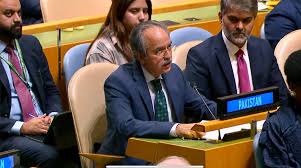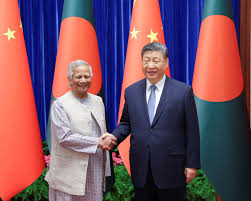Sherry Rehman bans use of Single-use Plastic Bottles in MoCC

Islamabad: Federal Minister for Climate Change Senator Sherry Rehman on Earth Day 2022 said, “The theme for Earth Day 2022 is “Invest in Our Planet”.
This is an investment that does not have to be a large economic envelope, but an investment we make in awareness and behavioural change to save our future. It is simple everyday changes that can make our earth sustainable for us and our children. All it needs is a beginning, a genuine commitment, not just words we put out for green correctness. Take plastics, they are amongst the largest pollutants throughout the world. The reason for their notoriety is the fact that they can take anywhere from 100 to more than 600 years to decompose. Pakistan in 2020 generated 3.9million tonnes of plastic waste alone and only 30% of it was recycled. The remaining 70% ends up in landfills, water bodies, and waste systems across the country.
Due to this, and to demonstrate personal commitment to a pledge we all need to invest in, I have directed the Ministry to no longer use single-use plastic bottles. Furthermore, I will be presenting the perils of continuing the use of non-biodegradable plastic to the cabinet, and advising that all of the government put their weight behind ending this degradation of our water and soil. End their usage”

She stated “ as a small actor and citizen I have long ago stopped the use of plastic bottles both in my home and my Senate office. It is important for others to understand the importance of incremental actions like this. Each has an effect. Similarly, by making several small changes to our routine we can demonstrate our investment in a future that we may not even see, but must be vigilant to protect. Pakistan is acutely vulnerable to climate stress, in fact fifth of all the countries in the world exposed to fragility.
We must take initiatives to invest in our planet, simple tasks such as picking up the trash, turning off lights that are not used, limiting our water usage, investing in reusable bottles, and using biodegradable alternatives to mainstream plastic products will go a long way.”
She continued, “In addition to their non-disposability, plastics present several other issues. As plastics are very versatile they are mass-produced; however, the chemicals added to plastics that give them this versatility are potentially harmful. Certain plastic compounds can alter hormones or have other health effects on humans, whilst this plastic debris can be potentially fatal for marine life. When floating in the ocean this plastic waste serves as a raft for invasive marine species which disrupt habitats in turn damaging the ecosystem. Similarly when it is burned these harmful chemicals are released into the air leading to several breathing-related illnesses such as asthma, bronchitis, etc. and when it is left in landfills our groundwater gets polluted.”
She concluded, “All stakeholders must play their part to ensure the Planets’ longevity. Pakistan’s commitments under the Paris Agreement require innovative, bold, and far-reaching solutions that cover investment in nature to curtail deforestation, the rollout of EVs, investment in renewables, and resilient infrastructure. To maximize the benefits of these investments, governments must ensure that delivery is done in an equitable manner that advances racial, economic, and environmental justice. This Earth Day when “investing in our planet” is a key focus, let’s ensure that climate investment reaches every community and apply tools that empower the most vulnerable for a climate-resilient future!”





